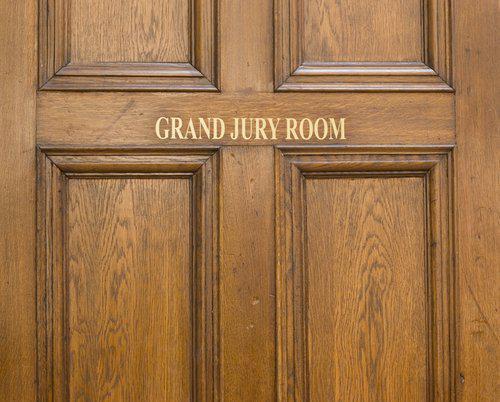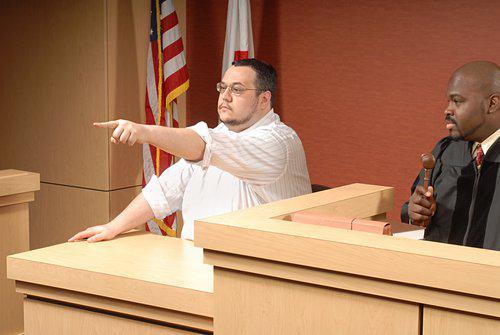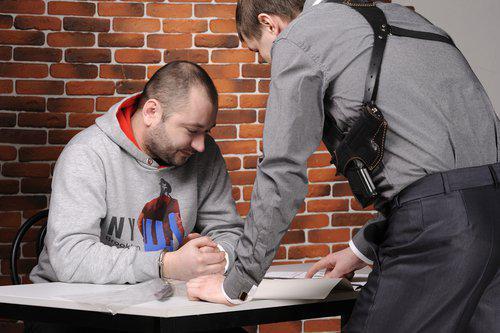Recent Blog Posts
Federal Wire Fraud: Connecting Prosecutors, Defendants and Correctional Institutions since 1956
 When people hear the term white collar crime, many do not think of it as a serious enough crime to warrant the advice of an attorney, as crimes of violence typically do. White collar crimes, such as wire fraud, are non-violent crimes and are usually committed by professionals in government and business.
When people hear the term white collar crime, many do not think of it as a serious enough crime to warrant the advice of an attorney, as crimes of violence typically do. White collar crimes, such as wire fraud, are non-violent crimes and are usually committed by professionals in government and business.
Recently, a host of wire fraud charges have been popping up across the United States and Wisconsin. A 64-year-old executive banker in Wisconsin was convicted on five counts of wire fraud on April 5, 2015 for fraudulent misrepresentations made in relation to a commercial real estate purchase. Likewise, on April 23, 2015, a 32-year-old Nigerian woman living in Chicago was charged with devising a fraudulent scheme in Wisconsin by creating fake profiles on Internet dating sites, targeting victims and convincing them to send money in exchange for fraudulent checks. The federal government charges individuals with wire fraud at a much higher rate than other crimes, such as tax fraud, healthcare fraud and securities fraud because, ultimately, it is much easier for them to prove.
Posting Bail: Understanding the Process and Your Options
 Typically, when an individual is arrested and charged with a crime, they have to wait weeks, months or even years before their case goes to trial. Depending on the circumstances of your case, you might be required to sit in jail until the day of trial comes. But, not everyone who gets arrested is required to stay in jail until trial.
Typically, when an individual is arrested and charged with a crime, they have to wait weeks, months or even years before their case goes to trial. Depending on the circumstances of your case, you might be required to sit in jail until the day of trial comes. But, not everyone who gets arrested is required to stay in jail until trial.
Posting bail is the only way to leave jail and remain free until your trial date. There are a few different ways to be released on bail. Cash, bonds, or property is considered bail and you may give one or more of these items to the court to ensure that you will appear whenever the court orders. Sometimes, if you are facing less serious charges, the court will release you on your own personal recognizance. But, if you do not show up on the court ordered date, then the court will keep the bail you posted and issue a warrant for your arrest.
Grand Jury Proceedings in Wisconsin
 Over recent months, the news has contained a significant amount of stories relating to a grand jury. However, these stories often provide little information as to the function of the grand jury. The jurors who attend the grand jury are similar to trial jurors in that they are randomly selected from the community and they listen to the evidence. However, there are some differences between the two.
Over recent months, the news has contained a significant amount of stories relating to a grand jury. However, these stories often provide little information as to the function of the grand jury. The jurors who attend the grand jury are similar to trial jurors in that they are randomly selected from the community and they listen to the evidence. However, there are some differences between the two.
A trial juror determines whether or not a defendant is guilty beyond a reasonable doubt. Grand jurors, on the other hand, decide if there is probable cause that the suspect is guilty of a crime, and they issue indictments that charge the suspect with a crime. Also, grand jury proceedings are secret while trial jurors serve in trials open to the public. Grand juries are made up of 16 to 23 jurors who serve from six to 18 months and trial jurors will usually serve for a week or two, depending on the trial.
Plea Bargaining When Charged with a Drunk Driving Offense
 Many criminal cases, including drunk driving charges, are resolved out of court through the process of plea bargaining. Plea bargaining moves cases through the criminal justice system without going through the lengthy trial process. A plea bargain, or deal, is an agreement between the defendant and the prosecutor. The defendant pleads guilty to the main charge or a less serious offense while the prosecutor drops one or more charges or recommends a specific sentence that is favorable to the defendant.
Many criminal cases, including drunk driving charges, are resolved out of court through the process of plea bargaining. Plea bargaining moves cases through the criminal justice system without going through the lengthy trial process. A plea bargain, or deal, is an agreement between the defendant and the prosecutor. The defendant pleads guilty to the main charge or a less serious offense while the prosecutor drops one or more charges or recommends a specific sentence that is favorable to the defendant.
- Defendants avoid the time and cost of defending the case at trial;
Drug Offenses in Wisconsin: Understanding the Sentencing Process
 The sentencing phase takes place after you are convicted of a crime. This phase occurs immediately after you enter a guilty plea, or as a result of a jury or bench trial verdict. Depending on the seriousness of the crime you were charged with, the judge determines the appropriate punishment. Many states, including Wisconsin, group crimes into three categories: (1) felony; (2) misdemeanor; and (3) petty offenses. Felonies are the most serious crimes, while petty offenses are the least serious. However, drug offenses are usually classified as misdemeanors or felonies.
The sentencing phase takes place after you are convicted of a crime. This phase occurs immediately after you enter a guilty plea, or as a result of a jury or bench trial verdict. Depending on the seriousness of the crime you were charged with, the judge determines the appropriate punishment. Many states, including Wisconsin, group crimes into three categories: (1) felony; (2) misdemeanor; and (3) petty offenses. Felonies are the most serious crimes, while petty offenses are the least serious. However, drug offenses are usually classified as misdemeanors or felonies.
- The type of substance you were in possession of when committing the crime;
- The amount of the substance; and
Right to a Speedy Trial in Drug Cases
 In all criminal prosecutions, including drug cases, you have a right to a speedy trial. This prevents the state or prosecution from keeping you in jail for an indefinite period of time without trial. However, the right to a speedy trial does not apply to every single stage of a criminal case. It will only arise after you are arrested or otherwise formally accused of a crime by the government.
In all criminal prosecutions, including drug cases, you have a right to a speedy trial. This prevents the state or prosecution from keeping you in jail for an indefinite period of time without trial. However, the right to a speedy trial does not apply to every single stage of a criminal case. It will only arise after you are arrested or otherwise formally accused of a crime by the government.
The right to a speedy trial is derived from the Sixth Amendment of the United States Constitution. The federal government and Wisconsin have passed statutes requiring the government, state or federal prosecutors to prosecute a defendant within a specified period of time. In Wisconsin, misdemeanor cases are required to go to trial within 60 days from the initial court appearance. On the other hand, in felony cases, the defendant or prosecutor has to make a demand for trial after formal charges, and a trial must commence within 90 days from that demand. There are certain exceptions that can extend or delay the specified time periods.
Drug Charges and Preliminary Hearings: Testing the Strength of the Prosecution’s Case
 Many states, including Wisconsin, require preliminary hearings to be held when you are facing felony charges and plead not guilty at arraignment, also known as the “initial appearance.” Depending on the circumstances of your case, you may decide to waive the preliminary hearing, give up your right to have one and proceed to trial. However, there are many circumstances where having a preliminary hearing will benefit you.
Many states, including Wisconsin, require preliminary hearings to be held when you are facing felony charges and plead not guilty at arraignment, also known as the “initial appearance.” Depending on the circumstances of your case, you may decide to waive the preliminary hearing, give up your right to have one and proceed to trial. However, there are many circumstances where having a preliminary hearing will benefit you.
A preliminary hearing is held to determine whether probable cause exists to bind you over for trial. Probable cause is a standard of proof and merely requires the prosecution to provide enough evidence tending to show: (1) that a felony was probably committed in the state of Wisconsin; and (2) that you were the individual that probably committed the felony. In order to show that the prosecution met its standard of proof, the police officer(s) who arrested you will be required to testify.
Understanding Miranda Rights: Right to Counsel and Avoiding Inadvertent Waiver
 Through each stage of the criminal justice system you have rights that must be protected. The Fifth and Sixth Amendments to the United States Constitution grant you many rights, including the right to an attorney in most stages of criminal proceedings. These rights ensure that your trial is fair and that you do not unjustly get sent to prison. However, some of your rights, including the right to an attorney, can be waived.
Through each stage of the criminal justice system you have rights that must be protected. The Fifth and Sixth Amendments to the United States Constitution grant you many rights, including the right to an attorney in most stages of criminal proceedings. These rights ensure that your trial is fair and that you do not unjustly get sent to prison. However, some of your rights, including the right to an attorney, can be waived.
Each year numerous people are arrested in the United States and are charged with drug violations. To be sure, the Bureau of Justice Statistics, in 2007, estimated that 14 million individuals were arrested across the United States, and approximately 1,800,000 of those individuals were arrested for drug violations. In Wisconsin, according to the Wisconsin Department of Justice, approximately 340,000 individuals were arrested in 2012, and an estimated 27,000 of those arrests were related to drugs.
Murder Charges and the Alibi Defense
 In many murder or homicide cases, defendants argue the case of mistaken identity—the prosecution charged the wrong person for the wrongful death of another. When you are facing murder charges for a crime that you did not commit, an alibi defense could be the key to dismissing the charges against you. The alibi defense is based on the underlying premise that you are truly innocent of the charges or any wrongdoing.
In many murder or homicide cases, defendants argue the case of mistaken identity—the prosecution charged the wrong person for the wrongful death of another. When you are facing murder charges for a crime that you did not commit, an alibi defense could be the key to dismissing the charges against you. The alibi defense is based on the underlying premise that you are truly innocent of the charges or any wrongdoing.
In traditional murder cases without an alibi defense, your defense attorney would argue that the prosecution failed to prove that you were guilty of the crime, beyond a reasonable doubt. The burden is on the prosecution to prove every element of the crime. However, when you raise the alibi defense, you have to persuade the judge or jury that the prosecution is charging the wrong person. The alibi defense rests on the credibility of your alibi witness.
Mental Illness: Understanding the Insanity Defense to Criminal Charges
 Depending on the facts surrounding your criminal case, there may be several defenses available. One of these defenses is the "insanity defense." When a defendant asserts the insanity defense, the defendant is arguing that he or she was not criminally responsible for his or her actions. The insanity defense is one of the most famous defenses in criminal law, although it is rarely used.
Depending on the facts surrounding your criminal case, there may be several defenses available. One of these defenses is the "insanity defense." When a defendant asserts the insanity defense, the defendant is arguing that he or she was not criminally responsible for his or her actions. The insanity defense is one of the most famous defenses in criminal law, although it is rarely used.
Typically, when a defendant asserts the "insanity defense" he or she will be required to be mentally evaluated. If the defense is successful, the defendant will be committed to a psychiatric facility instead of a correctional facility, depending on the circumstances of the case. This is because the insanity defense is based on the principle that incarceration or punishment is justified only when the defendant is capable of controlling his or her behavior and understanding the consequences of that behavior. Since people with certain mental disorders are incapable of knowing what is right or wrong, the insanity defense will prevent individuals with mental disorders from being punished criminally.







